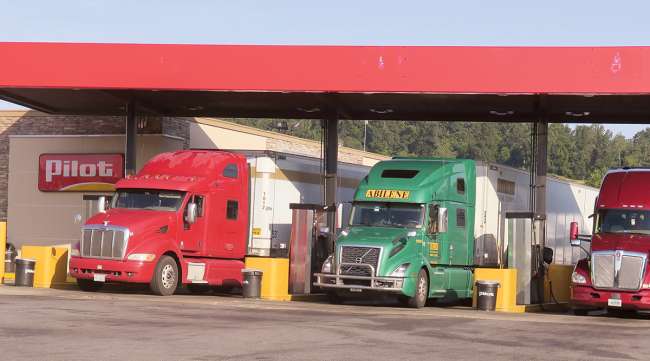Staff Reporter
Panel Discusses What’s Ahead for Greener Diesel

[Stay on top of transportation news: Get TTNews in your inbox.]
Diesel can play a central role for the transportation sector as it moves toward a more sustainable future, one that is inclusive of many factors which — collectively — can help the industry achieve its environmental goals, a panel of experts said.
“As we think about zero emissions and the path to zero emissions, that change will depend on the energy sources that are available — and also on the applications and regional infrastructure and local regulations around the world,” said Wayne Eckerle, vice president of research at Cummins Inc., during a Nov. 10 panel discussion hosted by the Diesel Technology Forum. “That path to zero will involve a mix of energy-convergent technologies that will use diverse carbon-neutral and renewable energy sources.”
Eckerle noted that there is movement globally toward “zero life-cycle greenhouse emissions,” which he said focuses not just on vehicle emissions, but also greenhouses gases associated with the raw materials, producing the product, using the product and eventual disposal of it.
Future outlook: Diesel to play ‘important role’ in path to zero emissions Thanks to @Cummins @JohnDeere @Neste_NA team for sharing key insights and helping us visualize the future! https://t.co/O9J04XbcWB via @therepublicnews — Diesel Tech Forum (@DieselTechForum) November 12, 2020
“Around the world, we’re seeing an increased interest in sustainability and a demand for zero life-cycle greenhouse emissions,” he said.
“When it comes to renewable energies, there are multiple options available,” added Carrie Song, vice president of renewable diesel at Neste, which produces renewable fuels for multiple industries. And it is broad participation across industries, she said, that will help propel growth of renewable fuels.
“When we look at our journey to combat climate change, everyone needs to participate,” Song said. “From that perspective, we really need every viable option.”
When we think about what can be done, the answer is actually quite straightforward: Make the switch.
Carrie Song, vice president of renewable diesel at Neste
She urged companies across sectors to consider the options that work best for them, and work toward adoption.
“When we think about what can be done, the answer is actually quite straightforward: Make the switch,” Song said. “If you think about technology readiness, from the endorsement from our [original equipment manufacturers], from the pool of success cases from our users, there are different angles of evidence supporting this very simple decision.”

Lefebvre
Diesel is part of the long-term mix at John Deere Power Systems, according to Michael Lefebvre, the company’s worldwide manager of marketing.
“We expect future iterations of diesel engines will leverage a lot of new technologies,” he said, noting that other manufacturers’ momentum with batter-electric and hybrid technologies puts pressure on diesel — which has been around much longer — to keep pace.
“We see the role of diesel as being decades ahead,” Lefebvre said, “and that means we can’t stand still in terms of diesel design and efficiency.”
Want more news? Listen to today's daily briefing:
Subscribe: Apple Podcasts | Spotify | Amazon Alexa | Google Assistant | More





